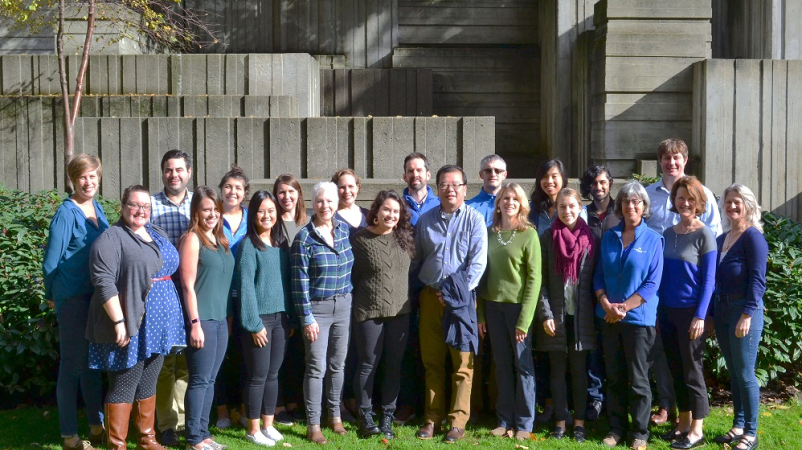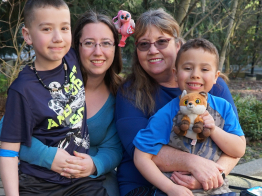
Benaroya Research Institute (BRI) is one of eighteen type 1 diabetes TrialNet International Clinical Centers at the forefront of type 1 diabetes research. Led by Carla Greenbaum, MD, the TrialNet team at BRI is dedicated to preventing type 1 diabetes and stopping disease progression by preserving insulin production before and after diagnosis.
Our Team

Carla Greenbaum, MD
Director, Diabetes Program and Center for Interventional ImmunologyDr. Greenbaum joined the Benaroya Research Institute (BRI) in 2000, where she is a Member and serves as Director of the Diabetes Program and the BRI Center for Interventional Immunology. Carla served as Chair of TrialNet for six years and is currently Co-director of the TrialNet Hub.

Sandra Lord, MD
Clinical Director, Center for Interventional Immunology; Director, Clinical Research CenterDr. Lord joined the Benaroya Research Institute (BRI) in 2013 and is a principal investigator and research physician at BRI. Sandie serves as the Clinical Director of the Center for Interventional Immunology and the Director of the Clinical Research Center at BRI. Additionally, she serves as Co-director of the TrialNet Clinical Center at BRI.

Kurt Griffin, MD, PhD
Associate Member; Principal Investigator, Griffin Lab; Center for Interventional ImmunologyDr. Griffin joined Benaroya Research Institute (BRI) in 2024 where he conducts clinical trials with a focus on immune modulation in type 1 diabetes, building on more than 15 years as a principal investigator at TrialNet Affiliate Sites. Kurt plays an active role in TrialNet, leveraging his experience from leading large-scale type 1 diabetes screening efforts like the Sanford PLEDGE study and is currently Co-director of the TrialNet Clinical Center at BRI and Co-director of the TrialNet Hub that supports communications for the network.

Dana VanBuecken, ARNP-BC
Sub-Investigator
Bao Ng, DNP, ARNP
Sub-Investigator
Anna Barash

Katie Bennett

Ella McGuigan
Megan Olson
“The success of every clinical trial depends on its participants and we thank every person who has taken part in the research conducted by Type 1 Diabetes TrialNet. Because of their participation, we are moving ever closer to preventing the progression of type 1 diabetes." Sandra Lord, MD
Regional Affiliates
Affiliates provide opportunities for people who do not live near a TrialNet Clinical Center. The affiliate sites listed below work with BRI to offer convenient participation in our research programs.
Research Studies
The following studies are actively recruiting participants. Please click on the study title to learn more. For those interested in participation, contact us for more information.
If you have a relative with T1D, you may be eligible for risk screening that can detect the early stages of T1D years before symptoms appear. More
Depending on your risk screening results, you may be eligible for monitoring. We’ll monitor you for disease progression and let you know if you become eligible for a study. More
If you are diagnosed with T1D while participating in one of our prevention studies, we’re still here for you. You can continue to receive personal monitoring while helping us learn more. More
TrialNet is testing a low dose of the immunotherapy drug anti-thymocyte globulin (ATG) to see if it can delay or prevent type 1 diabetes (T1D) in people ages 6 to 34 who have a 50% risk of clinical diagnosis (Stage 3) within 2 years. Risk is defined by having two or more autoantibodies and abnormal blood sugar (Stage 2), plus at least one high-risk marker (based on test results). In an earlier TrialNet study for people newly diagnosed with T1D, low-dose ATG preserved insulin production and improved blood sugar control for 2 years. Details
TrialNet is testing rituximab-pvvr and abatacept in people (ages 8-45) who were newly diagnosed with type 1 diabetes (T1D) to learn if using both treatments, one after the other, maintains the body’s ability to make insulin. By adding abatacept after rituximab-pvvr, researchers predict more people will experience prolonged beta cell function during and possibly after treatment. Details
TrialNet researchers are testing two different treatments – abrocitinib and ritlecitinib – to see if either or both can preserve insulin production in people (ages 12-35) newly diagnosed with type 1 diabetes (Stage 3 T1D). Abrocitinib and ritlecitinib are in a new class of autoimmune treatments called Janus kinase (JAK) inhibitors. Details






